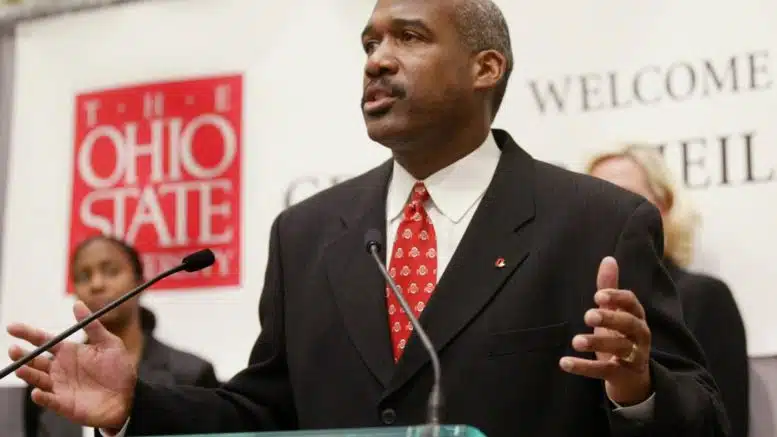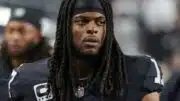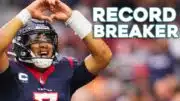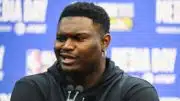Ohio State athletic director Gene Smith should be in his Danny Glover “I’m too old for this” stage of his career. The Buckeyes’ longtime athletic director is retiring in 2024, and presumably moving somewhere warm because Columbus is not the place. After this season, NIL isn’t his problem anymore.
However, after 30 years of serving as an athletic director at Ohio State, and elsewhere, Smith has made it his mission to play a significant role in the formation of national NIL legislation before he rides off into the sunset.
On Wednesday, Smith testified before Congress’ House Committee on Small Business about the need in college athletics for uniform national name, image, and likeness regulations. Peeling back rights after granting a constituency access to them is one of the hardest political tricks in the world, but the NCAA is doing its best, and sending in Smith as its champion of the Power 4 aristocracy.
During the hearing, Smith complained about the gall of prospective student-athletes to seek $5,000 from schools in return for a visit. For a man who is ostensibly the team president of Ohio’s third pro football franchise, Smith sounded quite apoplectic about the idea of shelling out a pocketful of Benjamins. Granted, that would constitute an NCAA violation, which exemplifies how much of a straw-man argument Smith let spill out of his mouth. And even if they did have recruits occasionally requesting $5,000 to secure a visit, it would be chump change. The Ohio State athletic department could pay each and every member of ESPN’s top 150 recruits five grand and barely put a dent in its annual operating budget. Programs like Ohio State dole out six-figure payouts just to schedule FCS programs for “money games” and don’t bat an eye.
However, the reality of Ohio State’s economic advantage over most of the nation’s athletic programs didn’t stop the Buckeyes GM from heading to Capitol Hill with laments for the plight of college football’s privileged class. Despite Smith delivering his testimony to the Small Business Committee, the NCAA is anything but. In 2022, the NCAA earned $114 billion in revenue.
“Student-athletes and their parents visit campuses at the expense of those universities to evaluate where they may make a commitment,” Smith wrote in a letter. “A practice of asking a school for a fee to simply visit campus has emerged; asking for $5,000 just to visit has become common. During visits, discussions now emerge regarding how much a student-athlete can expect from NIL.”
In the past, Smith has expressed his own solutions to the NIL dispute which entailed permitting schools to create licenses for athletes who could determine which school-related NIL endeavors they want to be involved in. This alternative monetary relief for athletes would only serve the NCAA’s interests though.
“They can do other things,” Smith explained to the committee. “We’d be able to help them settle deals. If you’re an athlete majoring in actuarial science and there is a company in Cleveland, I can take you up to Cleveland and I can take you up and help introduce you to the CEO, and say, ‘Hey, can you do a deal with him, and make sure he gets a good experience?’”
Nah, man. It’s too late for all that backpedaling. Smith should have been pushing this 10 years before the Supreme Court ruling that effectively ended the NCAA’s outdated amateurism rules. Smith’s solution sounds like the sort of thing that the NCAA should have supported years ago before they were forced to cross the name, image, and likeness rubicon. Now that they’ve lost the battle, their version of diplomacy has been to hire a politician to lead the NCAA and suggest student-athletes agree to surrender.
When pressed on whether his model would allow athletes to strike NIL deals with collectives, Smith replied, “I’ll leave that to your imagination.”
Anything that places significant restrictions on student-athletes accepting endorsement opportunities is a step back for the student-athlete. And after the landmark Supreme Court case, anything that bars them from access to lucrative endorsements they’re already collecting on will probably end up subject to another return trip to the Supreme Court.
The truth about NIL legislation is that it’s not about the players. It’s about the top-tier programs and athletic directors maintaining their own competitive advantage and keeping labor costs down for billion-dollar institutions.
Follow DJ Dunson on X: @cerebralsportex
Original source here
#Gene #Smith #NCAAs #NIL #solutions #leave #athletes #nil





